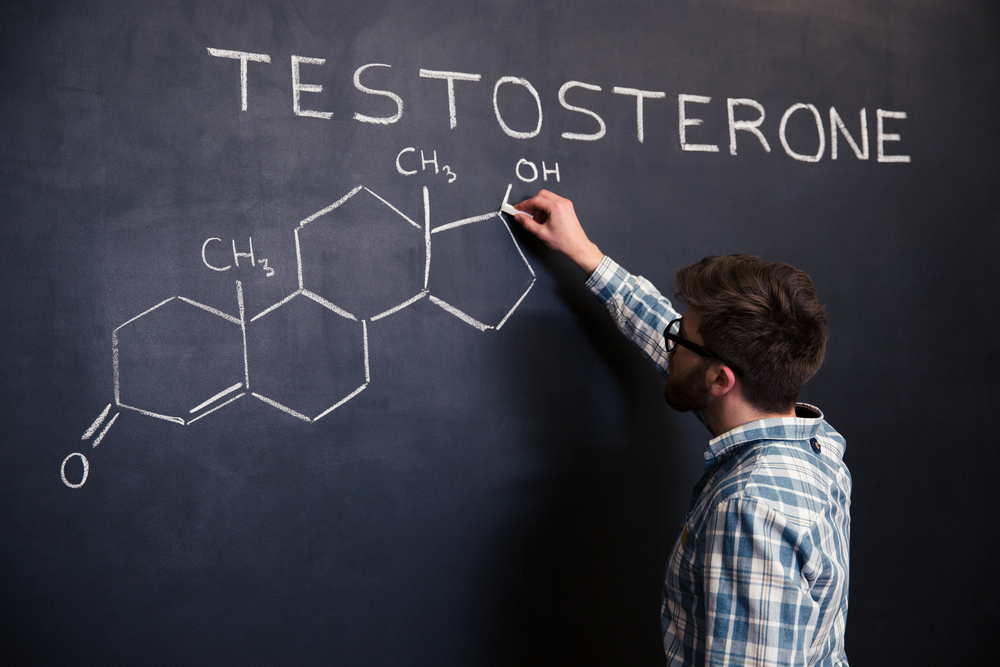Around the age of 30, your body starts to produce less and less testosterone every year. If you have low testosterone, then testosterone hormone therapy may be right for you. Today, our hormone experts at Premiere Center for Health and Wellness in Cincinnati, OH are looking at how testosterone affects men’s health as they age.
What Role Does Testosterone Play in Men’s Health and Aging?
Testosterone plays many roles in men’s physical and mental health as they age. One of the most common signs of low testosterone in men is sexual problems. If you suffer from testosterone deficiency, you may notice that your libido is much lower than it used to be. You also may start to suffer from sexual dysfunction, failing to achieve or maintain an erection reliably.
In What Other Ways Does Testosterone Affect the Body?
Testosterone also plays a significant role in the health of your hair and skin. This sex hormone is the driving force behind body hair growth during adolescence. If your testosterone levels drop too low, you may start losing body hair. Furthermore, you may notice that your skin starts to look drier, thinner, and less elastic.
Testosterone is also vital for your muscle, fat, and bone tissues. It is a key component of protein synthesis, and it’s required for producing growth hormone. If you suffer from low testosterone, you may start to lose muscle mass. Furthermore, testosterone is vital for adequate bone density. The less testosterone you have, the more likely it is that you will break a bone. Additionally, testosterone increases fat metabolism.
Does Testosterone Affect Heart Health?
There is evidence that suggests testosterone affects heart health. Research is still ongoing, but testosterone deficiency has been shown to negatively affect cholesterol levels. Maintaining optimal testosterone levels can help you keep your cholesterol levels in check without taking cholesterol medication. Additionally, it results in metabolic issues, like inflammation and poor glucose metabolism, that have been linked to cardiovascular disease.
If you increase your testosterone levels, you can slow atherosclerosis, and you may be able to reverse the serious heart condition completely. Moreover, if you are over the age of 70, your risk of heart disease increases if you suffer from testosterone deficiency. Furthermore, low testosterone makes congestive heart failure more dangerous.
How Does Testosterone Affect Mental Health?
Testosterone can affect your mental health in many ways. Commonly, men who suffer from low testosterone experience mood swings. You can also experience irritability and stress. Furthermore, if your testosterone levels are low, you may develop such mood disorders as depression and anxiety.
Can Testosterone Hormone Therapy Help Me?
Testosterone hormone therapy may be appropriate for you if you suffer from low testosterone. To find out if your testosterone levels are low, you need to come in for an appointment and take a blood test. Ideally, your appointment should be scheduled before 10 AM. Testosterone levels are highest in the morning.
We will also confirm that hormone pellets are right for you by discussing your medical history, including your prostate health, and your family history. We also need to know about all of the drugs and supplements you currently take and any past experience you have with hormone therapy. Additionally, we will discuss your symptoms thoroughly.
How Does Testosterone Replacement Work?
We administer testosterone via hormone pellets. During this treatment, we will make a tiny incision in the area of your buttock and insert tiny pellets into the incision. Then, we will close the incision. The implantation process rarely exceeds 15 minutes. The pellets will dissolve over the course of several months, slowly introducing testosterone into your bloodstream.
What Should I Do to Prepare for My Pellet Insertion?
Before your testosterone pellets are inserted, you must stop taking blood-thinners and anticoagulants for seven days. If you take aspirin daily due to a heart condition, you must get clearance from your primary care physician to stop taking the drug temporarily to be considered a good candidate.
What Aftercare Rules Will I Need to Follow?
It is imperative that you keep your incision site clean after your treatment, and it must remain completely dry for 24 hours after treatment. Additionally, it is essential that you do not swim, take a bath, or sit in a hot tube for three to five days post-treatment. Furthermore, you must not exercise for roughly one week post-treatment.
How Long Will the Results of My Treatment Last?
Generally, you can expect the results of your testosterone replacement therapy to last for six months. After that point, you may notice that you are once again struggling to achieve or maintain a full erection. You also may feel less interested in sex, put on fat, and lose muscle mass. You also may start suffering from insomnia and struggling to regulate your mood.
What Are the Benefits of Testosterone Hormone Therapy?
There are many benefits of testosterone hormone therapy. One of the most compelling benefits is that it is safer than topical testosterone replacement. If you opt for a testosterone cream, the hormone can transfer to your pets or partner if they touch the application area. It is also more convenient and effective than oral testosterone replacement.
If you take a testosterone pill, you must take the supplement at the same time every day. Additionally, taking an oral supplement cannot keep your hormone levels steady. This can result in feeling some of the symptoms of low testosterone, like mood fluctuations, despite supplementing your testosterone.
Schedule an Evaluation Today
Testosterone plays a wide range of roles in men’s health. It helps maintain sexual function, muscle mass, and fat metabolism. It also helps you maintain your bone density and keeps your skin and hair healthy. If you are noticing signs of low testosterone, schedule an evaluation at Premiere Center for Health and Wellness in Cincinnati, OH now to find out if testosterone hormone therapy is right for you.

